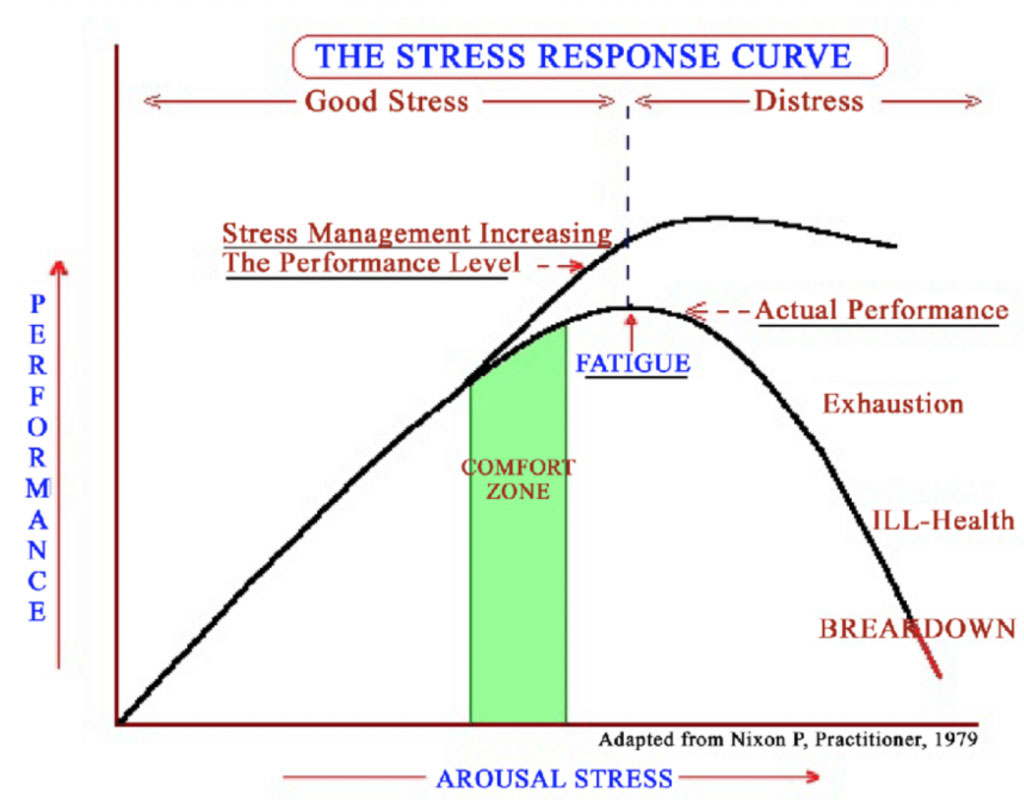As things are changing, and changing rapidly, I wanted to make a point of checking in with you from time to time to help assess your health. One of these things worth assessing is the state of your adrenals, and how things might be changing during this pandemic.
So, let’s talk about it.
I have been wanting to check in with my readers for quite some time about the state of their adrenals, but here are just a few questions to help us get started. Out of the ten listed below, keep track of just how many apply to you right now.
In the past two days, have you:
- Sighed for no apparent reason?
- Had abnormal sleep patterns?
- Felt unusual tension in your neck or shoulders?
- Had a hard time concentrating?
- Felt frustrated or overwhelmed?
- Noticed unusual digestive symptoms?
- Spent time worrying about your future?
- Been abrupt with a loved one?
- Had unusual food cravings?
- Felt a lack of joy?
These are all signs of chronic stress response. That’s what I want to talk to you about, and something that is going to be so important for your health moving forward.
In fact, it can be easy to be dismissive during this time. During an international crisis, it might be simple to brush things off. That said, even if they are common or justified, they are still significant in their own way.
This is one of the key concepts that I want to help you address today. After all, your stress response is a big deal, so let’s dive a little bit deeper into what that means.
Understanding Your “Stress Response”
During my time writing the Adrenal Reset Diet, I had to perform a lot of research and read a lot of papers relating to stress response.
I came across one titled the “Whitehall 2” study. This was a study that tracked around several thousand British civil servants for approximately four to six years.
During the study, there was a large amount of health metrics that were being evaluated. So, researchers monitored this large group of workers and kept track of who passed away.
After the fact, they looked into which factors became the most impactful predictors in each of these early deaths.
Some of the predictors were things that we might consider pretty obvious. Smoking, cholesterol, blood pressure, body weight, and other things along those lines.
I came across this paper because they also measured the circadian cortisol “slope” (which is essentially your cortisol in the morning versus your cortisol in the evening).
They used that metric as a proxy to gauge someone’s stress response. Either you had a proper slope, or one that was always high, always low, or inverted (high in the evening, low in the morning). Some level of abnormality was present.
Key Insight: What they saw was that the strongest predictor that looked at both cardiovascular death and total death was this cortisol slope.
It was all in the stress response. It was even more significant than smoking status or body weight. The thing it came down to was the cortisol slope.
Bottom Line: This paper revealed to me that, even with all the healthiest habits out there, if the stress load one is under, it can have an incredible amount of influence on overall health.
Embracing A New Mindset During COVID-19

When your stress load is high, there is simply a different tone to life. That’s how I like to put it, because stress can weigh on you during every single moment of the day.
The thing is, even in times that feel obviously stressful (or for good reason), I don’t think we should negate the way we feel and how that affects our health. In fact, we should shine a light on it to understand it better and what we can do about it.
After all, how we think about and address our stress response is huge, because we have access to those choices. And, ultimately, we are all in it together, at the same time.
Some of the less helpful choices we can make include:
- Acting oblivious
- Becoming indifferent
- Feeling helpless
On the other hand, we can choose to go down the more helpful route by:
- Building awareness
- Increasing our autonomy
- Embracing acceptance
Bottom Line: Let’s discover some of the things you can do, starting today, to keep you healthy and thriving as much as possible during this worldwide pandemic. I think it’s going to help a lot.
The Current State of Americans During COVID-19
In a recent survey, 45% of Americans said that they felt their mental health was suffering due to COVID-19-related life changes. This is completely understandable, especially in parts of the country where everything is locked down and life has changed dramatically.
Symptoms related to your mental health, and the stress response from it, can play a role in so many facets of your overall health. This can include:
- Body Weight
- Sleep Quality
- Fatigue Symptoms
- Immune Function
- Chronic Disease Risk
- Infectious Disease Risk
- Autoimmune Disease Progression
In this way, your adrenal gland and your adrenal health are so important. But, it all starts with dispelling the myth surrounding the term “adrenal fatigue.”
This is something I have discussed before (Read More: The Whole Story Behind Adrenal Fatigue), but the idea is this: at one point, some people believe that a weakened cortisol slope was that way because one’s adrenals were tired (or fatigued).
The belief was that they were unable to generate cortisol on their own. This led to some believing that this state of “adrenal fatigue” was a mild form of a disease called Addison’s disease where the glands themselves were damaged.
What followed was a fundamental misunderstanding that the body was capable of making cortisol, it wasn’t damaged even mildly, it was choosing not to make it.
It’s what we might consider a form of hypothalamic-pituitary adrenal dysfunction (HPA-D for short). While some have either incorrectly hung on to the concept of adrenal fatigue, or dismissed the adrenals altogether, it is a real thing and has real value in understanding.
Key Insight: I will often use the term “adrenal stress” in place of what we know as “adrenal fatigue,” in order to help shift our thinking and correct this flawed view and how it should be treated in the body.
Understanding HPA-D
Please know, I am not saying that your adrenals are a weak link. Instead, they are simply adapting to your body’s stress response and acting accordingly.
That is because your entire HPA axis, a key part of your health, is responding to this stress in such a way that it is counterproductive to your overall health.
What happens is that these are steps the body takes to help manage short-term, acute stressors in the body.
The thing about stress responses is that they serve a purpose. They can save us in dangerous situations, or even help us wake up in the morning. They serve a purpose, and are not simply there to make our health worse.
What we need to consider is something I have seen called the “stress response curve,” detailed in the image below…

This showcases our level of performance against our level of stress. In this context, stress can be understood as anything that happens to push your body off balance. It can certainly include psychological stress that we are encountering daily during this pandemic.
But, there are other things that may not be as overt. This can include things like our blood sugar, or the amount of sleep we’re getting, or even being too warm or too cold. These are all stressors on your body that throw it a bit out of whack.
Bottom Line: Being alive is being stressed, to a certain extent. We are always juggling these stressors and the effect they have on our lives, but the hope is that we rely on the certain stressors that can help us grow – and deny the ones that hurt us in the long term.
Understanding Stress Response
As you can see in the above image, there can be a point where stress becomes too much and it can cause you to break down. You no longer have the performance of personal growth, and are verging on the cusp of a breakdown.
In life, there are some stressors that we can choose and control. Those are good, and they can help us improve. That said, you also need to be mindful of the stressors that you can’t control whatsoever – like a pandemic, traffic, or anything else.
In those cases, we can manage that curve by relying on resilience. The remainder of my discussion today will revolve around this key concept of resilience and adaptability, and the things we can choose to do to help mitigate those stressors that we cannot control.
How Can We Become More Resilient?
The simple fact of the matter is that we cannot change the amount of stress we are currently under. It’s a worldwide level of stress, and it looks like it may not be going away anytime soon. That said, what we can do is focus on resilience.
Key Insight: Think of your health as an equation. Take your resilience, bolster it with your level of adaptability, and remove your total stress load (what we call the allostatic load). That is what you’re left with, and that’s your health in a nutshell.
The truth is that resilience is innate. We have things like:
- Constitutional differences
- Genetics
- Temperament
- Early life experience
- Current mindset
Each of these things inform our resilience. A big part of that, though, is understanding our aforementioned allostatic load. This is the sum total of all factors pushing you away from your equilibrium (preventing you from feeling balanced).
This can include:
- Changes to your routines
- Lack of social connection
- Physical stasis
- Economic uncertainties
- Lack of security in expectations
All of these work in finite ways to disrupt your wellbeing, which can include:
- Circadian rhythms – Whether your body thinks it is morning or night
- Glucose regulation – How well you can keep a steady stream of glucose in your blood
- Micronutrient status – How the nutrients we need change
These stress hormones, or glucocorticoids, are pivotal. The more your glucose needs to be managed to work properly, the more your stress hormones have to get involved.
Other ways that shifts occur in our bodies is that we have something called a “sympathetic nervous system.” This is what we might also call the fight-or-flight response.
This results in parts of the nervous system that are voluntary and some that are involuntary. The thing is that, during involuntary times (during fight-or-flight) we are unable to perform the “scheduled maintenance” of our immune system that helps keep us healthy.
It takes a lot of energy and a lot of materials to run the immune system. During an acute crisis, though, those things get shelved. During a stress response, the resources normally earmarked for our immune system get used elsewhere.
Bottom Line: This approach can be legitimate during a time of immediate physical danger, but over a long course of psychological danger it can break us down and hurt us.
Choosing Adaptations For Your Health

So, what can we do to adapt?
Better yet, what can we do to help manage this time in all of our lives and help mitigate the stresses we are currently feeling (and the ones potentially plaguing our health).
The first can be a change in mindset. We want to be aware of our state, understand the control and autonomy that we do have, and make choices while accepting the things we can’t control.
Operating from that mindset, there are additional things that we can do to help…
Glucose Regulation
The best thing to manage your glucose is going to be adequate meals with consistent frequencies, and this includes having a good mixture of healthy:
- Carbs
- Fats
- Proteins
What you truly need is a mix. It helps to avoid the mindset of any one of these food sources being inherently “bad” or “good” and avoiding the others based on that. Variety is key.
Also, food frequency is vital. You are better off eating more regularly and not avoiding any of these big food categories. In the end, the added stress will not help.
Lastly, adding more fibers and resistant starch can be a great addition to your diet (Read More: Resistant Starch Foods You Need To Know). This allows for more stable blood sugar, even passively, to help benefit your glucose regulation.
Circadian Hygiene
This is huge, because your habits have an overall huge effect on your health and your stability.
The biggest ones here include the things you do in the morning and the things you do in the evening. We’ll touch on this later with some more specific rituals, but some of the basics include getting:
- Bright light in the morning
- Adequate protein in the morning
- Movement throughout the day
- Having a nighttime ritual
Micronutrients
In terms of micronutrients, there are some that we need in greater amounts during times of chronic stressors. We may want to consider additional:
- B5
- Vitamin C
- Magnesium (Read More: Why Magnesium Is So Important)
- Potassium
- B12
- Molybdenum
Key Insight: When it comes to micronutrients, I am a much bigger fan of targeted multivitamins rather than a lot of individual micronutrients.
Ultimately, it is simply better to have nutrients in their full context. This is especially true for those who have or are worried about thyroid disease.
That’s why we created the Daily Reset Pack. It was designed to not only provide nutrients in full concert with one another, but to be attuned to the needs of those with thyroid disease, too.
Bottom Line: Even during times of heightened stress, the Daily Reset Pack has been designed to account for overages that can even help you during these times. You’re still covered.
Phytonutrients As Adaptogens
Some plants tend to have a quality to them, almost magic-like in nature, of helping the body heighten its homeostasis. Many things that may be out of balance, whether too much or too little, may come back into balance with the help of certain phytonutrients.
I love a lot of these, but the ones that are especially great are the ones that we can easily find in our diets. These include:
- Turmeric
- Ginger
- Mushrooms
- Ginger
- Blueberries
- Rosemary
- Basil
- Chamomile
- Sesame seeds
- Grapefruit
Then, we may want to consider the phytonutrients that we may be able to get from botanical medicines. Much like vitamins and minerals, these are much better in the correct context.
Which Adrenal Pack Is Right For You?
Someone recently asked me about this, and they wrote in and asked: “Hi Dr. C, Which of the adrenal stress packs is best? Should I use the quiz or is one better for immune support?”
Is one of those packs more appropriate for a time like right now? It’s a great question, and overall I am encouraging people to focus on the “Crashed” pack that is currently available.
Overall, it is equipped with the best ingredient profile to help protect you against major psychological stressors and immune stressors.
There are some key reasons why. The Crashed pack, more specifically, has a lot of nutrients designed as time-specific (with day and night packs).
They are targeting krebs cycle intermediates, including:
- Ribose
- Malic Acid
- Succinic Acid
- Creatine
There is also a lot of mitochondrial support, which includes COQ10, vitamin C, some N acetyl tyrosine. We can also find some anxiolytics to lower the stress response, which includes gamma-aminobutyric acid, glycine, and theanine.
I did also include melatonin in there. There is some intriguing research out there for how melatonin may be able to offset the ways in which the COVID-19 virus can be harmful to the body.
There are also some adaptogens, as previously mentioned, including:
- Ashwagandha
- Rhodiola
- Lemon balm
Bottom Line: In terms of a single thing to help your body become more stress-adaptive, I would recommend both the Daily Reset Pack and the Crashed Pack to help provide baseline support to help maintain your resiliency on a day-to-day basis.
Action Steps: Habits You Can Start Right Now
The first thing to do is have habits.
It may sound simple, but the key here is to really establish habits that you can continuously and consistently work on every single day. This is going to help so much when it comes to help build your resiliency and your stress response.
Key Insight: It may even start with writing them down. Put together an action plan that works for you, and how you are going to start incorporating these healthy habits into your daily routine.
If your habits change over time, that’s okay. You can remove ones that don’t work, work in new ones that you want to try, it is totally fluid and up to you. The main thing, though, is to incorporate some (if not all) these habits to help your body respond better to stress.
So, what kind of habits can you build? Here are the ones I would suggest depending on the time of day…
Morning Rituals
The first one is sunlight. It is so important to help your body synchronize with the daily light of the sun, so this is one of the first rituals that I would recommend.
In your first hour of being awake, try and spend a half of that hour outside. Get some fresh air or enjoy a morning shake in the sun. If your morning begins before the sun rises, you may want to consider getting a light that does the same thing.
During that same timeframe, you’ll also want to get a really good dose of protein into your system. This helps to support afternoon cortisol suppression, and really helps set your circadian rhythms in a productive fashion.
Then, we need to think of movement. Any type of movement really, so long as it is continuous and for around 45 minutes. While the other suggestions may have been more time-sensitive, this can be done at any point before the afternoon.
Throughout the day, at least think about 5 minutes of movement. Set a timer to help keep you honest, so that you know to do it.
Bottom Line: The things we do in the morning set the tone for the rest of the day. Please, try and prioritize any of these to help ensure you do what’s right for you during these stressful times.
Evening Rituals
Now, let’s turn to the evening. One of the things I would most encourage is journaling. Even if only for five minutes or so, and written out on paper, the best thing to do is simply write down your thoughts. You don’t need a format, just think out loud — or, rather, on paper!
This has been a big habit of mine for quite some time now, and I really feel like it has a positive effect on my life. It helps organize thoughts, speak them into existence, and turn them into something real — it can be incredibly cathartic and productive.
Another thing to consider is thermal therapy. This would include a lukewarm bath (of 95 – 100 degrees) that lasts around a half an hour of the day. You can also include epsom salts, too, which are totally welcome.
Finally, I’d also love for you to consider Progressive Muscle Relaxation. I’m going to detail the steps below, but this is just a great way to release nervous energy and help ease the tension of a long day or during a stressful time.
Bottom Line: As essential as the day, the way you end your evening is important. With any of these rituals, you can help add peace, relaxation, and ease the stress of what’s currently going on in the world right now.
Progressive Muscle Relaxation: The Basics
So, let’s start by laying on your back in bed.
The technique of PMR is one that involves holding your breath and tensing your muscles, coupled with slow breathing and relaxing those same muscles. Basically, starting from your toes and your feet, you work your way up your body.
Here are the steps:
- Take a deep breath, hold it, and count to five.
- As you’re doing this, tense your toes as tight as possible.
- After counting to five, exhale and release the tension you’ve built.
- Take three additional breaths to meditate on that relaxation.
- If still tense, repeat again
Take the journey all the way from bottom to top. Start with your feet, then your calves, then your hips, your torse, your arms, and finally your head, neck, and face.
Key Insight: On average, embracing PMR can result in falling asleep 20 minutes faster and gaining around 30 – 90 minutes of quality sleep.
Managing Your Stress Load Today
As we discussed today, right now we are encountering a time when all of us are under a lot more stress than usual. No matter where we are, chances are life has changed greatly and we now have a lot more to think about.
During this time, your risk for adrenal is higher than ever. But, if you take the steps to protect yourself, you will be able to help your metabolism, immunity, and overall health.
Your resilience is a big piece of this puzzle. If you can become proactive, work on these habits and rituals, and do what’s right for your body and your mental health, hopefully we can all come out of this time feeling stronger and like we have learned something about ourselves.
Please, feel free to start today. I’m happy to have been able to share this with you, and I hope that if you’re concerned about your adrenals you can start with the Adrenal Quiz today (Click Here: Take The Quiz Today).
I hope you, your family, and everyone you love is staying well.

1. Schedule a Thyroid Second Opinion with me, Dr. C, Click Here for Details
2. Download and use my Favorite Recipes Cookbook Here
3. Check out my podcast Medical Myths, Legends, and Fairytales Here
Dr. Alan Glen Christianson (Dr. C) is a Naturopathic Endocrinologist and the author of The NY Times bestselling Adrenal Reset Diet, The Metabolism Reset Diet and The Thyroid Reset Diet.
Dr. C’s gift for figuring out what really works has helped hundreds of thousands of people reverse thyroid disease, lose weight, diabetes, and regain energy. Learn more about the surprising story that started his quest.



